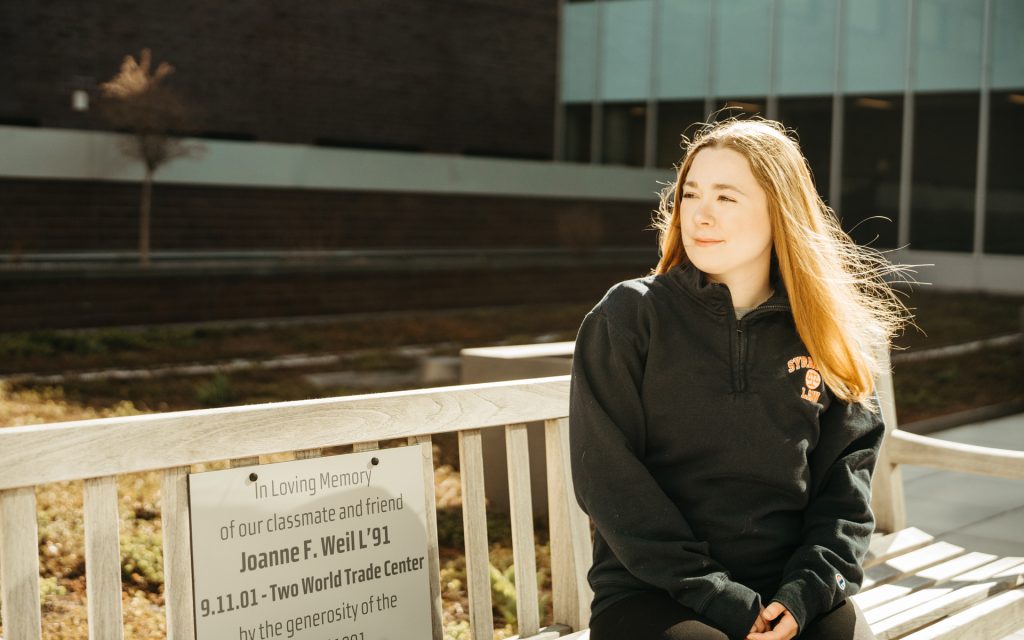
Meghan Wright L’24 is too young to remember much about the events of 9/11, but, living in Westchester, New York, just outside New York City, her mother knew people who had died in the Twin Towers. This gave Wright a “healthy respect” for the attack on the U.S. and impacted her choice to study national security law at Syracuse University College of Law.
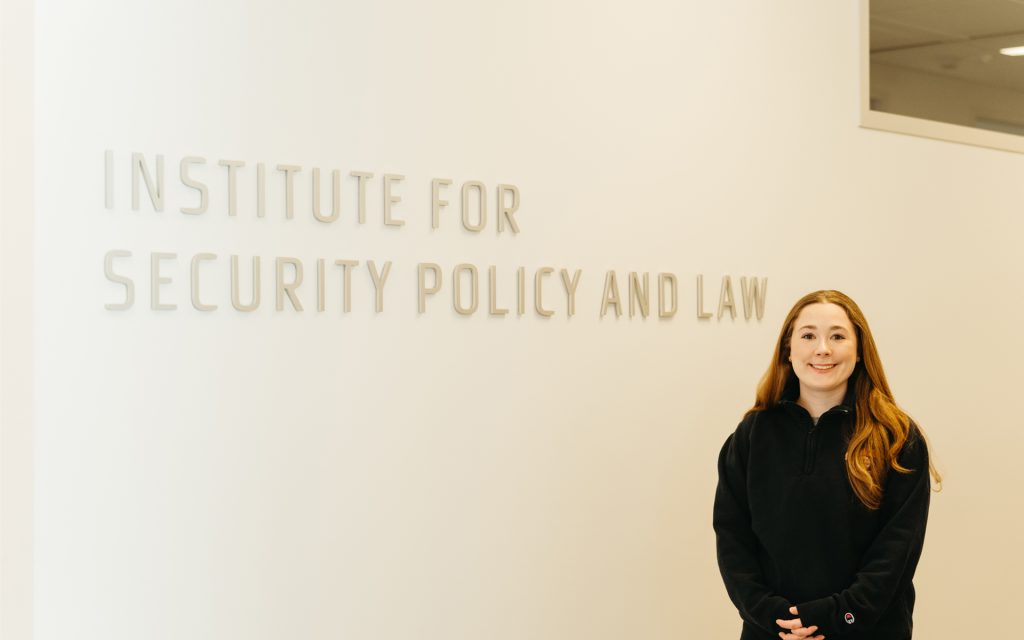
Wright earned her bachelor’s degree in political science with minors in history and security threat assessment and terrorism studies from Iona College. As she began researching her next steps, she came across Syracuse Law’s Institute for Security Policy and Law (SPL) led by the Hon. James E. Baker and decided that was the path she wanted to pursue. Wright took a year off after graduating from college to give herself ample time to study for the LSAT, and, when the time came, Syracuse Law was the only place she applied. Wright credits that gap year for helping her score high enough on the exam to not only be accepted into Syracuse Law but also be a recipient of a Dean’s Scholarship, which helped make her goal financially possible.
Since she began at Syracuse Law, Wright has fully immersed herself in her classes and the many other co-curricular opportunities the School offers. As a 2L, she served as president of the National Security Student Association, and, this year, she is the president of the Military and Veterans Law Society. Wright has also contributed to the Journal for the Global Rights Organization.
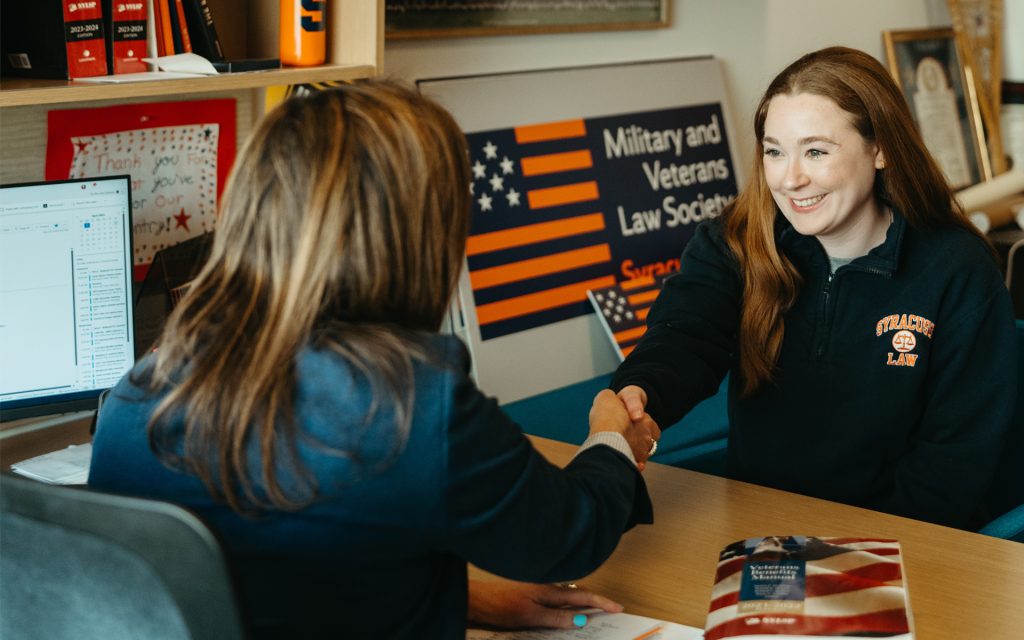
She is particularly proud of is the work she has done for Syracuse Law’s Betty and Michael D. Wohl Veterans Legal Clinic. Her work assisting veterans is especially important to her, as her father served in combat during Operation Desert Storm. At the clinic, she works with veterans on either discharge upgrade claims or claims for disabilities incurred in or because of service.
“It’s important to me to help the veteran community, as it has always been an important aspect of my life. My work has also prepared me for my career because neither the government nor a client wants to hear, ‘I missed that deadline,’ so I’ve learned to better organize tasks and prioritize other responsibilities,” she says.
Wright has enjoyed her course work over the past three years and credits Teaching Professor Elizabeth Kubala, a U.S. Army veteran and executive director of the Veterans Legal Clinic; and Associate Teaching Professor Laurie Hobart, a former national security lawyer within the U.S. intelligence community, as role models.
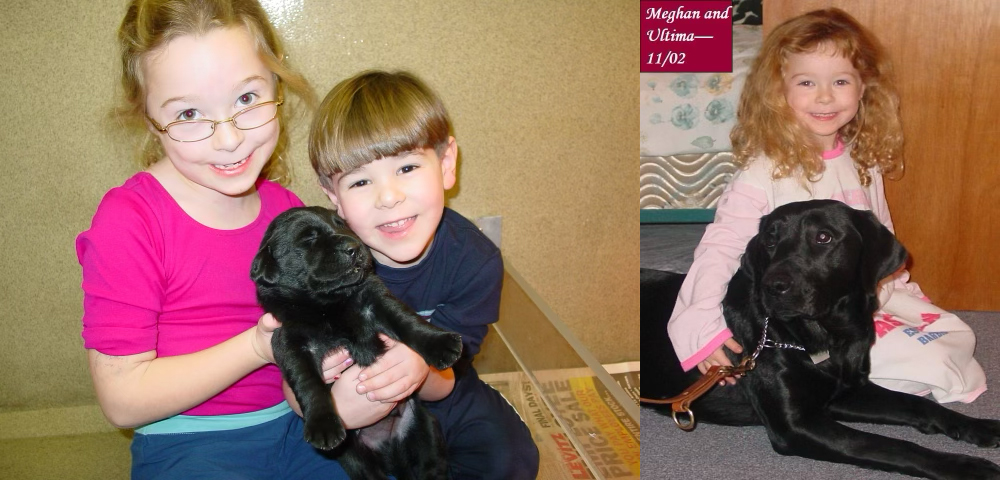
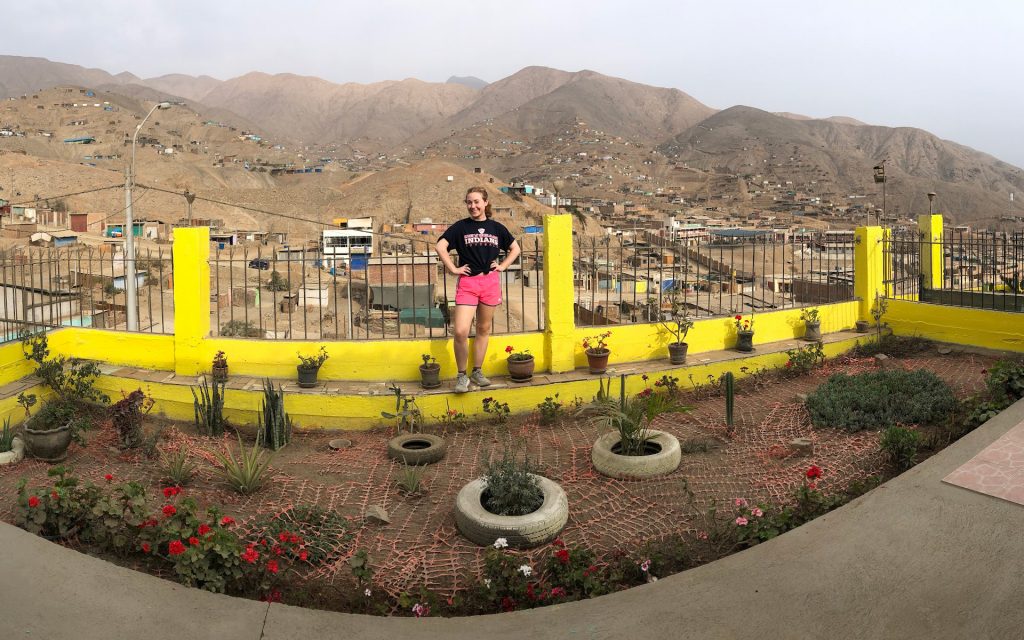
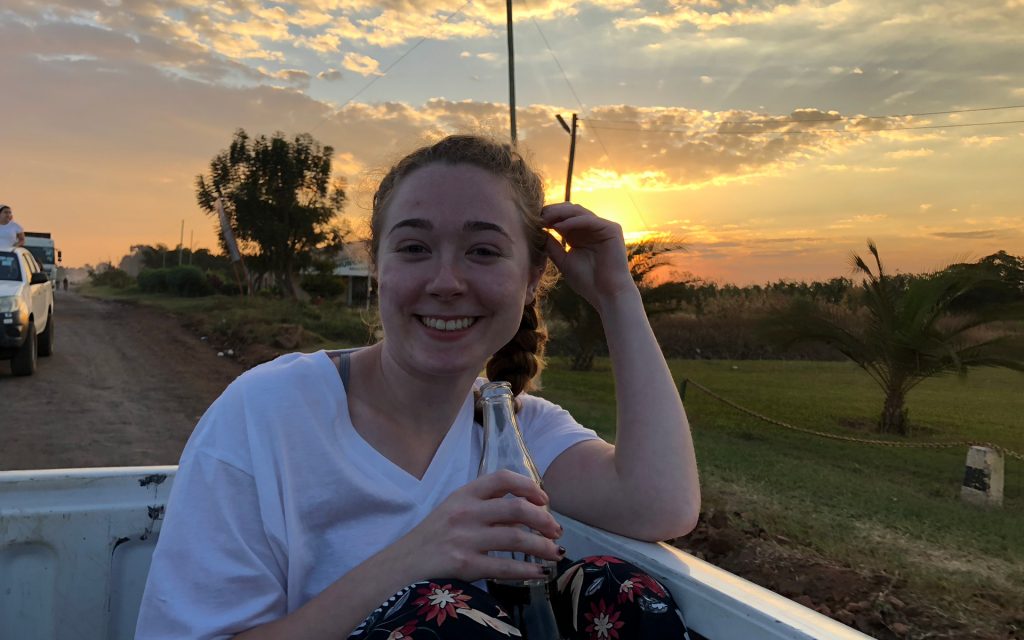
Giving back to others was something instilled in her as a child. “My mom always had opportunities for my brother and me to participate in different service opportunities growing up. My family fostered dogs for Guiding Eyes for the Blind, which was always so much fun, and I took advantage of a lot of service opportunities while attending Iona,” she says, noting volunteer experiences at nursing homes and soup kitchens, as well as mission trips to Mississippi, Peru and Zambia.
“Serving others has always been a big aspect of my life, which is why I really enjoy the opportunities Syracuse Law offers, like the Veterans Legal Clinic, to use the skills I’m learning to help others.”
Meghan Wright L’24

As Wright prepares to graduate, she is eager to see what the future brings.
“In an ideal world, I would like a career that marries national security law and criminal law, while also being able to take on some pro bono cases for veterans’ benefits on the side,” she says. “My experience at Syracuse — from the course work to the prestigious faculty to the chance to put my legal skills to work helping others — has prepared me to take the next step, and I’m excited to make my mark.”
